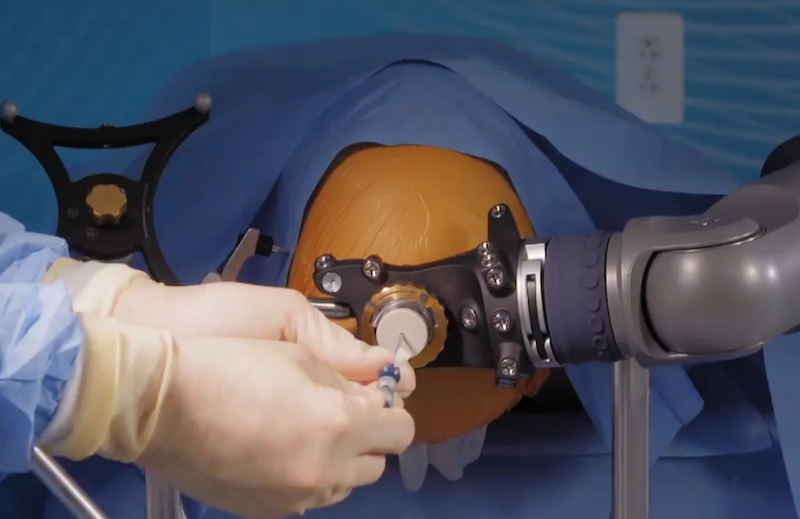
ExcelsiusGPS robotic system used for brain surgery
Christus Health has become the first health provider to use a robotic system for brain surgery, describing the ExcelsiusGPS as “a world-class robotic guidance and navigation system”.
The ExcelsiusGPS system, built by Globus Medical, was used in the first Christus Ochsner Health case this week, setting a new standard for robotic neurosurgery procedures in Southwest Louisiana.
Bringing the ExcelsiusGPS to the region was made possible with the help of the Christus Ochsner Health Southwestern Louisiana Foundation and its generous donors who gifted more than $1.1 million to make the purchase possible.
Jim Davidson, president and chief operating officer, Christus Ochsner Health Southwestern Louisiana, says: “For us to bring this to the patients of Southwest Louisiana is vital in our mission of extending the healing ministry of Jesus Christ. We are able to offer a whole other level of clinical experience and expertise.
“The ExcelsiusGPS brings new opportunity to the field of spine surgery, robotics, and navigation as our program continues to expand.”
ExcelsiusGPS maneuvers like a navigation system in a vehicle; The ExcelsiusGPS neurosurgical robot is designed to improve safety and accuracy within the operating room through improved visualization of patient anatomy during procedures to help optimize patient treatment.
Dr Erich Wolf, neurosurgeon, Christus Ochsner Health Southwestern Louisiana, says: “It helps us to do more precise localization on structures within the body. We can target various positions within the patient and provide them with the best possible care.”
This robotic navigation platform is the world’s first technology to combine a rigid robotic arm and full navigation capabilities into one adaptable platform for precise alignment in spine surgery.
During the procedure, the surgeon controls the ExcelsiusGPS. The system is designed to streamline the surgical workflow and efficiency while reducing radiation exposure to surgeons, staff, and patients.
Brian Kelly, neurosurgeon, Christus Ochsner Health Southwestern Louisiana, says: “It makes things incredibly more accurate. It allows us to preplan your surgery, and it assures accurate placement of the hardware that is to be installed or implanted to stabilize the patient’s spine.
“It is exceptionally more accurate than previous techniques and really revolutionizing the field.”


